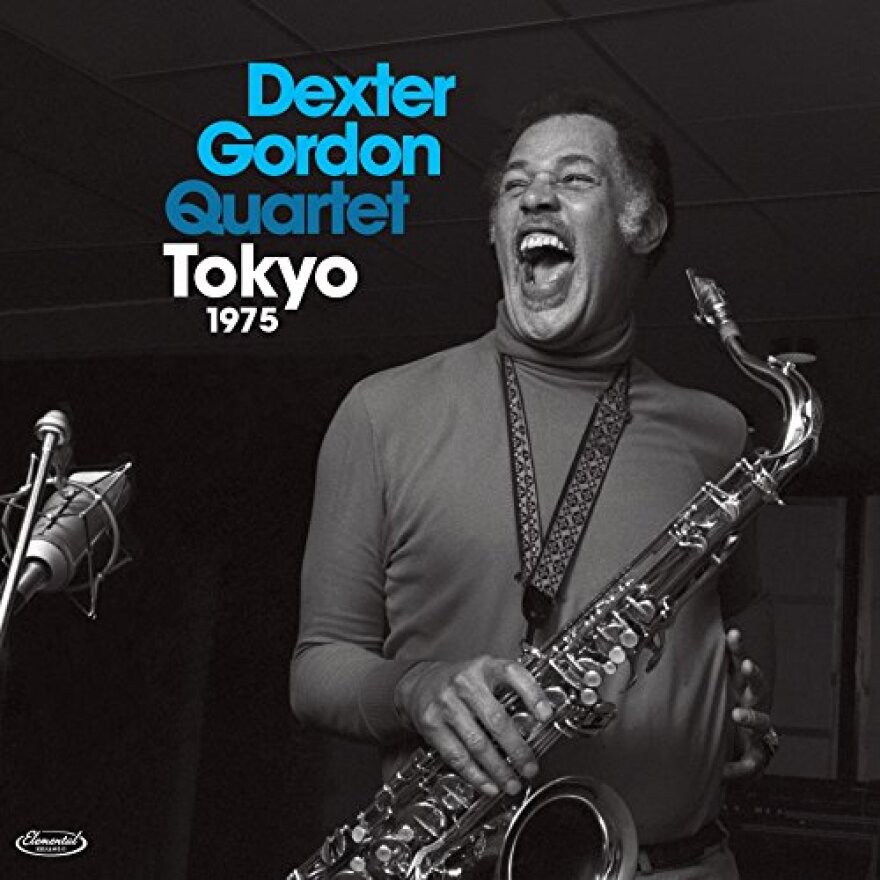Tenor saxophonist Dexter Gordon and trumpeter Woody Shaw hailed from two different jazz generations, but found common purpose in the music.
Now each artist has a new album on the near horizon, featuring vibrant live performances largely recorded in Japan, and previously unreleased. Dexter Gordon Quartet Tokyo 1975 and Woody Shaw Tokyo 1981 are both due out on July 13, in CD and LP editions, from Elemental Music.
Tokyo 1981, recorded on Dec. 7 of that year, captures a ferocious set by Shaw’s working band at the time, featuring trombonist Steve Turre, pianist Mulgrew Miller, bassist Stafford James and drummer Tony Reedus. This new lineup had just made its debut on a Columbia album called United, produced by Michael Cuscuna.
“Like all great bands,” Cuscuna writes in the liner notes to Tokyo 1981, “this quintet is comprised of musicians who were destined to play together. The blend and empathy of Shaw and Turre and the interlocking precision of Miller, James and Reedus made for an incredible and original-sounding ensemble.”

All of those elements certainly converge on “Apex,” a high-octane burner by Miller that the band would officially introduce on the Elektra/Musician album Night Music, recorded in 1982. This earlier version, which premieres here, is no less turbocharged: the rhythm section’s gear-shift from an Afro-Latin groove to uptempo swing and back is a perpetual thrill, and Shaw’s solo crackles with authority. (The subsequent solos on the tune, by Turre and Miller, are also keepers.)
Elsewhere in the set, the band plays several Shaw originals, like “Rosewood” and “Song of Songs.” There’s a prime version of “’Round Midnight,” the Thelonious Monk ballad that also appears on The Tour: Volume Two, a recent archival find recorded on tour in Europe in the 1970s.
A different Monk tune appears on Dexter Gordon Quartet Tokyo 1975: an effervescent version of “Rhythm-a-Ning,” actually recorded not in Tokyo in ‘75 but rather in Holland two years earlier. (It’s one of two bonus tracks on the album; the other comes from Gordon’s famous “Homecoming” jaunt in ’77, and actually features a spoken introduction by Shaw.)
Gordon was living in Copenhagen in the mid-‘70s, and had broken in this ace quartet — with Kenny Drew on piano, Niels- Henning Ørsted Pedersen on bass and Albert “Tootie” Heath on drums — during long engagements at the Montmartre club there. They took the stage at Yubin Chokin Hall in Tokyo, on Oct. 1, 1975, obviously ready to play: from the opening tune, Gordon’s own “Fried Bananas,” there’s an alert and buoyant energy in their rapport.
The crucial factor, of course, is Gordon, who seems to be in excellent spirits despite the hardships of the road. His widow and former manager, Maxine Gordon, recalls in the liner notes that he complained the most about one aspect of the tour: at 6’6”, he said, “I am too tall for Japan.”

Note the warmth and sensitivity he brings to this performance of “Misty,” the Erroll Garner ballad. Beginning in a luxurious slow tempo, it picks up a faint shuffle backbeat around 2:40, before dissolving back into an undulant wave. Gordon’s solo is nothing short of marvelous, a shining example of open sentimental expression that never tips into bathos. And Drew’s sparkling piano solo, picking up after the five-minute mark, meets him at that high bar.
“When we listen to Dexter here,” writes Gordon, “we are reminded of his humor, his brilliance, and the serious thought behind every one of his compositions.” We’re also hearing what Cuscuna identifies as the last known recording of the Drew-Ørsted Pedersen-Heath rhythm section, which turns sharp around every curve.
Sophisticated Giant: The Life and Legacy of Dexter Gordon, a biography by Maxine Gordon, is due on the University of California Press in November.
Woody Shaw: Beyond All Limits is a documentary film now in production, directed and produced by Woody Shaw III.
For more information about Dexter Gordon Quartet Tokyo 1975 and Woody Shaw Tokyo 1981, visit Elemental Music.



